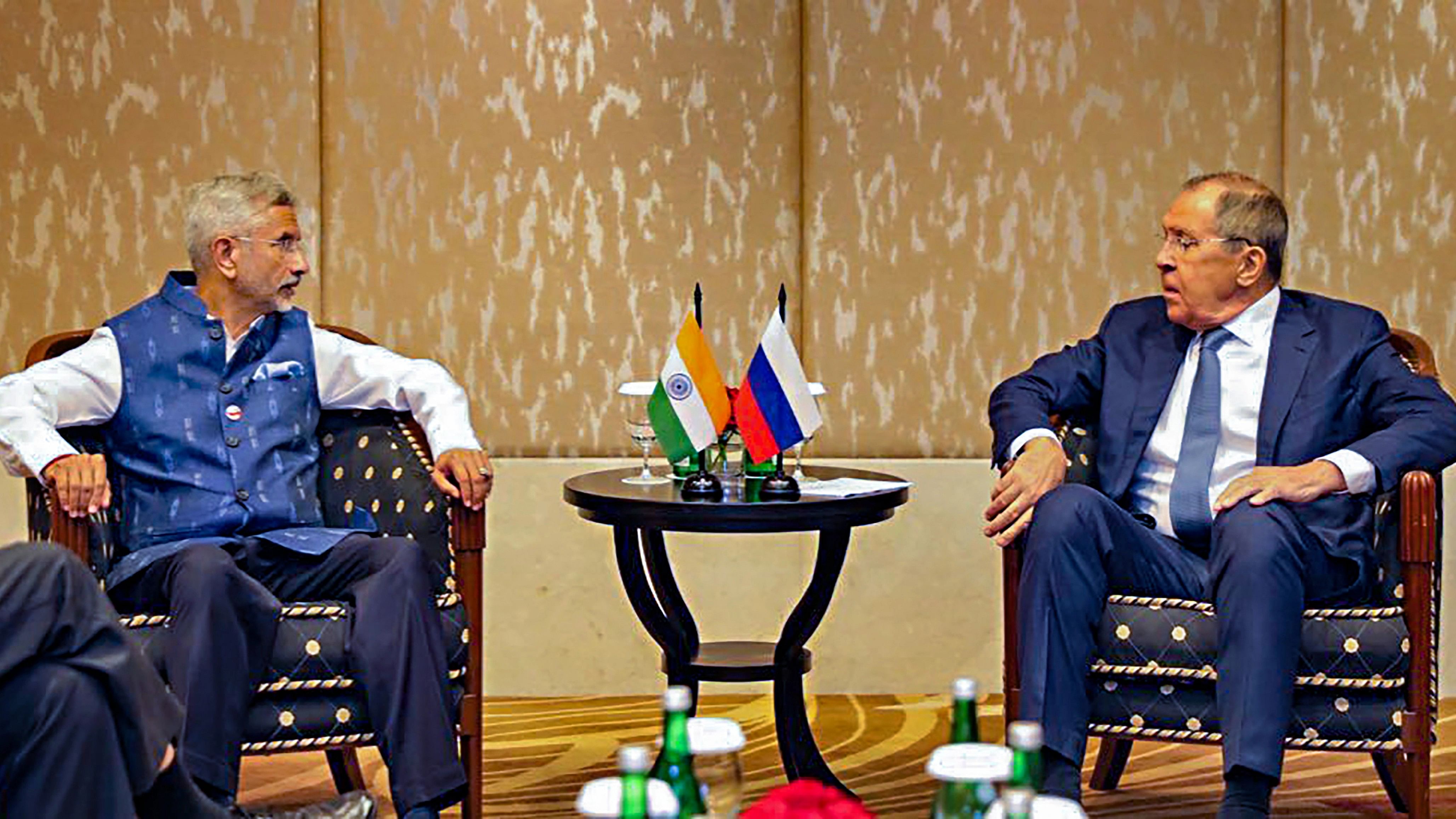
Minister of External Affairs S Jaishankar with Russia's Foreign Minister Sergey Lavrov hold talks on the sidelines of the 18th East Asia Summit, in Jakarta, Indonesia, Wednesday, September 6, 2023.
PTI Photo
External Affairs Minister S Jaishankar met Russian Foreign Minister Sergey Lavrov in Jakarta on Wednesday amid growing pessimism about a consensus on the outcome document to be adopted by the G20 at its summit in New Delhi this weekend – particularly due to differences over the war in Ukraine.
The G20 Sherpas, who met at Nuh in Haryana from Monday to Wednesday, failed to reach a consensus over the proposed “Delhi Declaration”. The United States, the United Kingdom, the European Union and other Western nations refused to accept the changes India proposed to the paragraph on the war in Ukraine in order to make it acceptable to Russia and China.
Lavrov will lead the delegation from Moscow to the G20 summit in New Delhi as Russian President Vladimir Putin will give the annual meeting of the leaders a miss. Jaishankar, however, couldn’t wait for Lavrov to arrive in New Delhi and met him on the sideline of the East Asia Summit in Jakarta, apparently to seek his intervention to end the impasse in the negotiation over the ‘Delhi Declaration’, proposed to be adopted by the G20 leaders on Sunday.
“So, to get absolute consensus on a statement on Ukraine is challenging because you’ve got Russia seated at the table, albeit not at the leader level because Putin isn’t going to be there,” Jake Sullivan, US National Security Advisor, told journalists in Washington DC, as uncertainty over the outcome document continued with just two days to go before the summit commences this Saturday. Sullivan was briefing journalists ahead of US President Joe Biden’s visit to New Delhi to attend the summit.
Not only the US, but other Western nations are also giving up hope for a consensus to be reached on the proposed outcome document, according to diplomatic sources in New Delhi.
Most of the Western leaders attending the summit are expected to continue the tirade against Russia for its ‘special military operations’ in Ukraine.
Sullivan also said that the summit would see a continued focus on how the intergovernmental forum, comprising 19 nations and the EU, would deal with Russia’s illegal and ongoing war in Ukraine. “The reality is that Russia’s illegal war has had devastating social and economic consequences, and the poorest countries on the planet are bearing the brunt of that,” said the US NSA.
He said that Biden would call for a just and durable peace in Ukraine, one founded in respect for international law, principles of the UN Charter, and the precepts of territorial integrity and sovereignty. “And, he (Biden) will continue to emphasize that the US will support Ukraine for as long as it takes to redeem these principles.”
Though the West, led by the US, has been insisting on the inclusion of a statement condemning Russia’s military aggression against Ukraine in the proposed ‘Delhi Declaration’, Beijing and Moscow have been opposing it, arguing that the G20 was a forum meant to promote international economic cooperation, and not to discuss geopolitical issues.
Two paragraphs on the Russia-Ukraine conflict and related geopolitical issues had been part of the ‘Bali Declaration’, which was adopted after much wrangling at the end of the 17th G20 summit held in Indonesia in November of 2022. The ‘Bali Declaration’, however, had also taken note of the “other views and different assessments of the situation and sanctions”. Russia and China had initially objected to the declaration but finally accepted it.
However, Moscow and Beijing have changed their stand since India took over the G20 presidency from Indonesia in December of 2022. They are now vehemently opposing one of the Bali Declaration’s two paragraphs on the Russia-Ukraine conflict. The G20 Sherpas made a last-ditch attempt during a meeting in Nuh from Monday to Wednesday, but consensus remained elusive.
